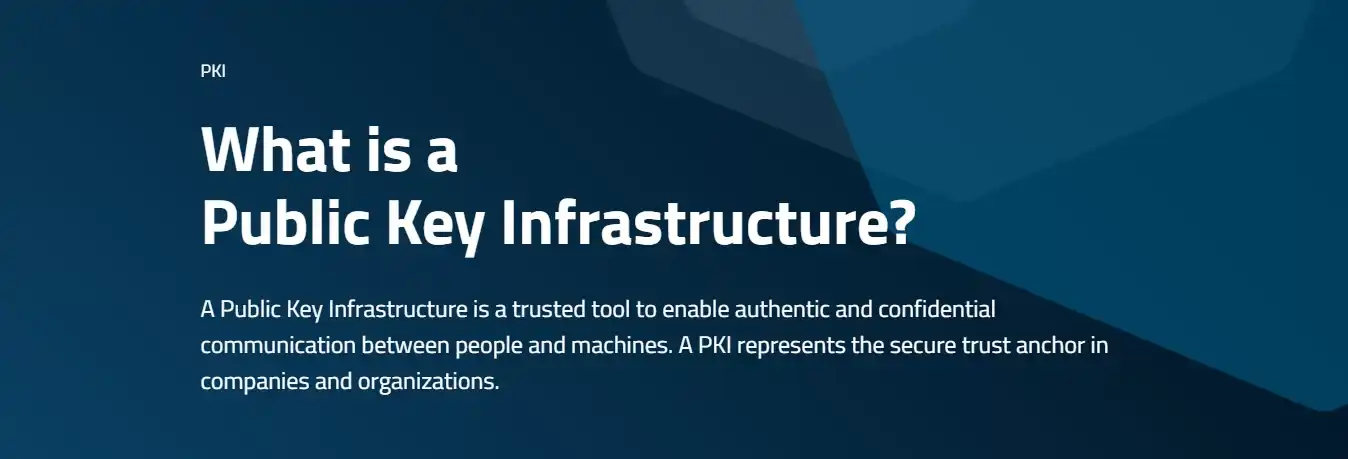
A Public Key Infrastructure (PKI) is a system of processes, technologies, and policies that you can use to encrypt and sign data.PKI is the framework of encryption and cybersecurity that protects the communications between the server (your website) and the client (the users), VPN, SSH, DEVICE AUTHENTICATION, and IoT, With PKI, you can issue digital certificates that authenticate users, devices, or services. These certificates work for public websites and private internal services (for example, authenticating devices connected to VPNs, Wikis, Wi-Fi, etc.). PKI plays a vital role in building a trusted and secure business network by being able to verify and exchange data between various servers and users.
Main Components Of Public Key Infrastructure(PKI)
1 – Registration Authority (RA): The Registration Authority(RA) accepts the Certificate Application and verifies the identity of the applicant using an acceptable form of identification, which may be provided in person, by telephone, by mail or courier, or by any other secure means accepted by the RA. Identification may include a driver’s license, social security number, or another unique identifier for the applicant. If the RA approves the request, the RA contacts the Certificate Authority (CA) at PKI and asks them to issue the requested digital certificate and key pair to the requester. RA and CA can be different entities within the same company or organization. Registrars add an additional layer of control and management to create a controlled and secure environment.
2 – Certificate Authority(CA): CA is a trusted third party that can issue Certificates as these certificates play a vital role in PKI as it handles most of the encryption work, authentication is a critical process as it is difficult to understand which entity holds which key. As providers of these certificates, Certificate Authorities are a trusted and critical pillar of public key infrastructure (PKI). The main purpose of a certificate authority is to verify the authenticity and reliability of websites, domains, and organizations so that users know exactly who they are communicating with online and whether those entities can be trusted with their data. When a certificate authority issues a digital certificate for a website, users know that they are connecting to an official website and not to a fake or fake website created by hackers to steal their information or money.
3- Digital Certificates (DC): Digital certificates facilitate secure Digital communication and data exchange between people, systems, and devices online. Digital Certificates are issued by a Certificate Authority (CA) and serve two primary functions that are Verify the identity of the sender/receiver of electronic communication and provide the means to encrypt and decrypt the messages between sender and receiver (i.e., binding and entity to their public key)Digital Certificate is an electronic “password” that allows a person or organization to securely exchange data over the Internet using a Public Key Infrastructure (PKI). A Digital certificate is also known as a public key certificate or identity certificate.
To Know more about PKI contact us at +91-9818221255 or write us at Sales@anveshvision.com
